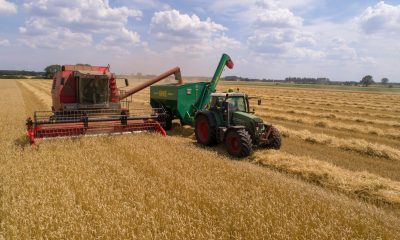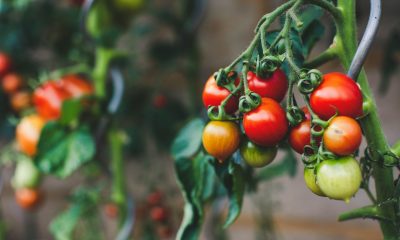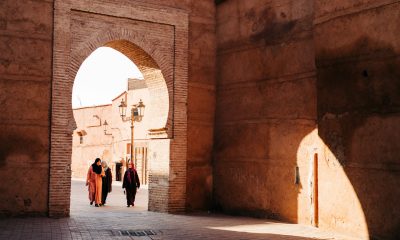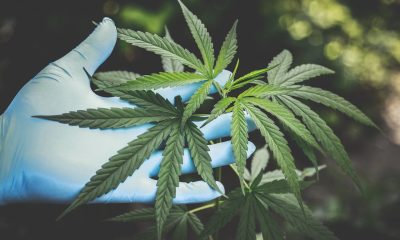Africa
Morocco is 3rd in Africa in terms of agricultural reforms
Agriculture remains a flagship sector of Africa’s economy and Morocco in particular. Thus, in order to promote their agricultural sector as much as possible, African countries are establishing reform after reform in order to boost this sector. In this context, the World Bank’s “Enabling Business of Agriculture (EBA)” report placed Morocco in the third place of the ranking.

Agriculture is one of the pillars, if not the mainstay, of the Moroccan economy. The kingdom has much to be proud of, and its among the top 3 countries on the African continent with the highest score in terms of agricultural regulation and reforms. However, unfavorable weather conditions are expected to reduce citrus crops, particularly oranges in Brazil, Egypt, the EU, and Morocco.
In Morocco, orange production is expected to fall by 31% to 815,000 tonnes due to water shortages and adverse weather conditions. Consumption, exports, and fruit destined for processing will therefore decrease.
The Born2Invest mobile app covers sub-African and international news, and business stories 24/7. Dowload the app and stay updated every day.
The agricultural sector in Morocco
The agricultural sector has not been on the rise as a result of the 2018-2019 campaign. This situation was primarily caused by the low rainfall in the kingdom. That said, although cereal production was revised during the said period, the agricultural sector managed to maintain its course via other productions.
It seems that Morocco has learned from the “failures” of the 2018-2019 campaign, and has mobilized a whole arsenal of measures for the 2019-2020 campaign. The Ministry of Agriculture, Maritime Fishing, Rural Development, and Water and Forests has set up a plan, in continuity with the Green Morocco Plan. The objective behind the plan is to guarantee the correct distribution of water resources, but also to support local actors in the development of their activities, by providing them with better access to financing, as well as to the technical means they need.
Thanks to these measures, the kingdom has managed to climb up to 3rd position in the Enabling Business Agriculture (EBA) ranking of the World Bank (WB) for the year 2019, which focuses on the countries with the best agricultural reforms in the world.
Morocco scored 64.02 points, and is positioned at the front of the stage along with South Africa (68.73 points) and Kenya (68.73 points). It should be noted that African countries score between 16 and 63 points on average. We can find Liberia in last place with 16.42 points, and Zambia in 4th position with 63.73 points.
Morocco, a leader in water resources management
The World Bank (WB) states that the country owes its position to the measures it has taken in terms of water resource management, pest control, the provision of seed sector players, and the necessary equipment. In addition to this, setting up storage structures adequate for national production to boost its production for the European, Asian, and American markets also played a part in pushing the kingdom into 3rd place.
Thus, with regard to irrigation, Morocco has proceeded to mobilize an area of 487,000 hectares for irrigation for the 2019-2020 campaign on the kingdom’s large perimeters, 23% of which are dedicated to cereal crops.
Since the kingdom intends to continue the implementation of the National Irrigation Water Saving Program (PNEEI), whose objective is to ensure the irrigation of a surface area of 50,000 hectares by using the drip irrigation technique. In addition, Morocco will modernize its irrigation network over an area of 120,000 hectares in order to maximize the use of available resources at this level.
__
(Featured image by no one cares via Unsplash)
DISCLAIMER: This article was written by a third party contributor and does not reflect the opinion of Born2Invest, its management, staff or its associates. Please review our disclaimer for more information.
This article may include forward-looking statements. These forward-looking statements generally are identified by the words “believe,” “project,” “estimate,” “become,” “plan,” “will,” and similar expressions. These forward-looking statements involve known and unknown risks as well as uncertainties, including those discussed in the following cautionary statements and elsewhere in this article and on this site. Although the Company may believe that its expectations are based on reasonable assumptions, the actual results that the Company may achieve may differ materially from any forward-looking statements, which reflect the opinions of the management of the Company only as of the date hereof. Additionally, please make sure to read these important disclosures.
First published in HESPRESS, a third-party contributor translated and adapted the article from the original. In case of discrepancy, the original will prevail.
Although we made reasonable efforts to provide accurate translations, some parts may be incorrect. Born2Invest assumes no responsibility for errors, omissions or ambiguities in the translations provided on this website. Any person or entity relying on translated content does so at their own risk. Born2Invest is not responsible for losses caused by such reliance on the accuracy or reliability of translated information. If you wish to report an error or inaccuracy in the translation, we encourage you to contact us.

-

 Crowdfunding6 days ago
Crowdfunding6 days agoFrom Confiscation to Cooperation: Funding Casa de la PAZ’s Social Transformation
-

 Impact Investing2 weeks ago
Impact Investing2 weeks agoGlobal Energy Shift: Record $2.2 Trillion Invested in Green Transition in 2024
-

 Business20 hours ago
Business20 hours agoWhy the iGaming Industry Offers Some of the Best ROI for Affiliate Marketers
-

 Crowdfunding1 week ago
Crowdfunding1 week agoDolci Palmisano Issues Its First Minibond of the F&P “Rolling Short term” Program
























